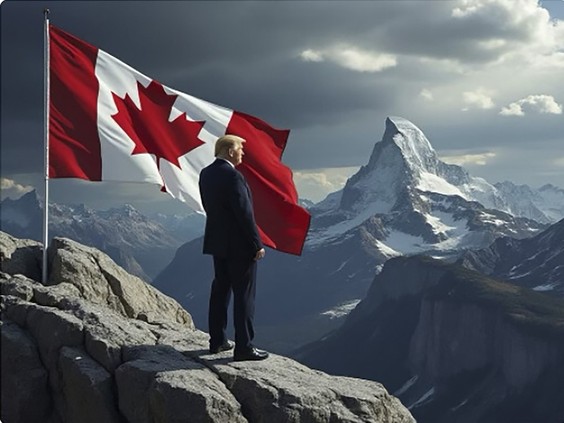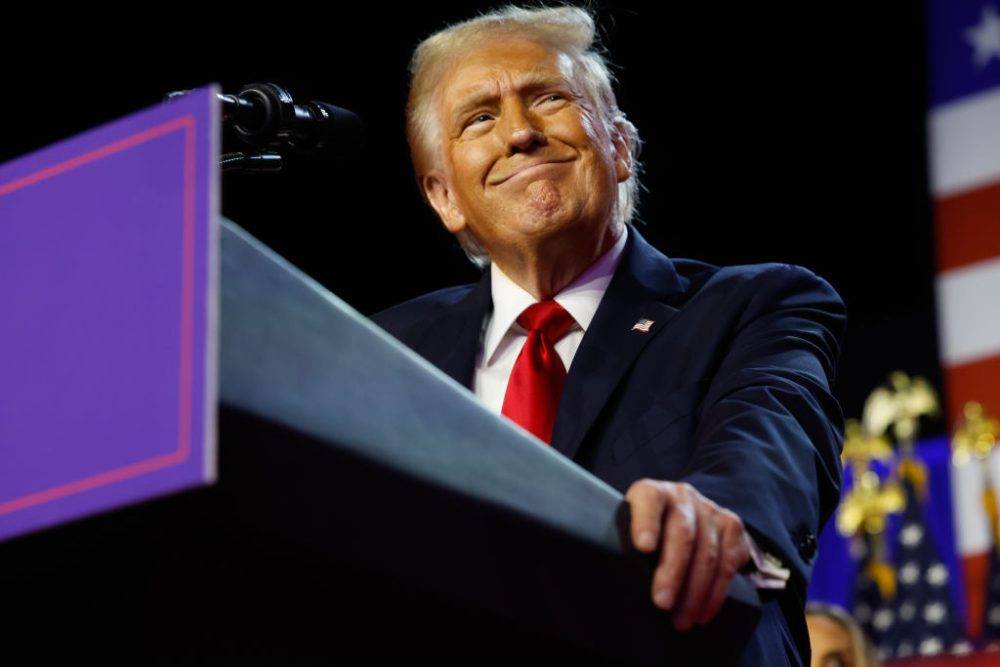Will Taiwan Semiconductor Manufacturing Become US Semiconductor Manufacturing ? We Should Be on Guard
(Taiwan) on 3 December 2024
by (link to original)
The self-proclaimed “Tariff Man,” Trump will unfortunately spare no country from the bite of his tariffs to actualize his “Make America Great Again” slogan. According to Howard Lutnick, Trump’s nomination for commerce secretary, while the purpose of the tariffs is to obtain equal tariff treatment from other countries, the tariffs on Chinese goods involve strategic competition between two great powers. Therefore, unless China makes large concessions, it will be difficult to reach another Phase One trade agreement similar to the one Trump signed with China in 2020.
The geopolitical conflict between the U.S. and China has already caused serious problems for Taiwan’s “Made in Taiwan” initiative, and the dividends from Taiwan’s exports to the U.S. have become increasingly negative. The current accelerated fundamental change to the “China Plus One” supply chain diversification strategy companies used in the past to avoid political risks has made a “Taiwan Plus One” strategy an option. Customers have reminded many traditional industries to diversify their investments overseas. The hero of Trump’s campaign, Elon Musk, has required factories that provide parts to SpaceX to move out of Taiwan.
Society is more concerned about the prospects of the country’s “silicone shield,” the Taiwan Semiconductor Manufacturing Company. During Trump’s first term, TSMC (TPE:2330) was “invited” to set up a factory in the U.S. Now, everyone is worried that the promise which reassured Taiwan at the time is not, in fact, unbreakable. Periodically, the media reports that TSMC has set up high-end processes at its wafer fabrication sites, including advanced packaging technology. Recently, it was confirmed that next year’s board meeting would move to the U.S in February. No matter how TSMC officials explain this, people are increasingly worried that TSMC will become “USMC.”
Domestically, the discussion of business as strictly business does not allow high-end foundries to remain rooted in Taiwan. The former Ministry of Economic Affairs minister recently said that Trump suggested Taiwan “stole our chip business” because “he doesn’t understand the semiconductor industry … The U.S. accounts for 43% of the world’s semiconductors. Without Taiwan’s manufacturing help, it would be unable to make a lot of money.” This statement cannot prevent the U.S., acting from a national security perspective, from continuing to require TSMC to invest heavily in the U.S. Those who adhere to Trump’s populist mercantilism may believe that chip manufacturing should be America’s “domestic industry.”
Former White House National Security Advisor John Bolton claimed that in the confrontation between the U.S. and China, Trump often compared Taiwan to the tip of his Sharpie pen, while China was his Resolute Desk. If this is how Trump sees Taiwan, and if the White House decides that TSMC’s most advanced manufacturing processes must relocate to the U.S., then the investment review process of the Ministry of Economic Affairs will be difficult to stop. What’s more, foreign investment accounts for 73.4% of TSMC shares; changing the strategic decisions of the board of directors is not hard. Therefore, if TSMC is ordered by the U.S. to leave Taiwan, the stock exchange and Financial Regulatory Commission will be unable to do anything about it. After all, the affiliation of TSMC is a political rather than business question. Under geopolitical tension, TSMC’s role as a “silicone shield” protecting Taiwan has become a great risk to the country.
It is already accepted that the further the trade war between the U.S. and China progresses, the more intense it will become, and Taiwan’s industrial development will be impacted. However, Taiwan’s government has yet to communicate with society and create a consensus around how to face the challenge. The Executive Yuan is still discussing the U.S.-Taiwan Initiative on 21st-Century Trade, whose future hangs in the balance. The Ministry of Economic Affairs’ “internal and external” policy attempts to alleviate pressure on high-tech industries in setting up factories abroad; however, this method of helping industries expand abroad only makes it more convenient for the U.S. to accelerate absorbing Taiwanese industry “partners.” Although we are worried that TSMC’s profits will be damaged by going to the U.S., we are unable to impede America’s intention to control semiconductor design and manufacturing.
“Preparedness ensures success, and unpreparedness spells failure.” The confrontation between the U.S. and China will become increasingly intense. It is not groundless to predict the impact of a second Trump term on Taiwan’s economy, nor is it “anti-American” or “suspicious of America.” This is a reminder to Taiwan’s government to prepare early for every possible situation and to have a plan B.
Over the past eight years, the government has become rigid in its cross-strait relations. Taiwan has long had no international room for negotiation or mediation. However, a look at the government’s economic development strategies raises the concern of whether Taiwan will be able to face the challenges of Trump 2.0. For example, the “Five Trusted Industry Sectors” promoted by the National Development Council conflict with Trump’s MAGA goal more than they complement it, and the probability of developing them is low.
Over the next four years, the government should return to comprehensive economic development from the three aspects of addressing climate change, balancing industry needs and stimulating domestic demand, in addition to supporting domestic high-tech industries. In other words, the investment trick of “diversify, diversify and diversify again” might be the best plan to mitigate the impact of a second Trump administration on Taiwan’s economy.


